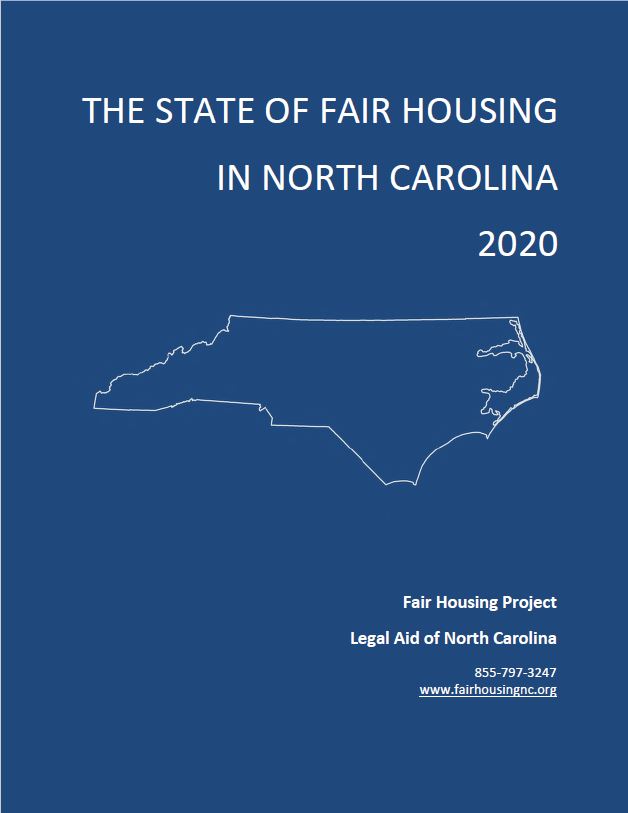 Discrimination based on race and disability continue to account for the vast majority of housing discrimination complaints filed in North Carolina, according to a new report by the Fair Housing Project of Legal Aid of North Carolina. The report, titled State of Fair Housing in North Carolina, examined North Carolina fair housing complaint data obtained from the U.S. Department of Housing and Urban Development (“HUD”) over a 20-year period, from 2000 – 2019.
Discrimination based on race and disability continue to account for the vast majority of housing discrimination complaints filed in North Carolina, according to a new report by the Fair Housing Project of Legal Aid of North Carolina. The report, titled State of Fair Housing in North Carolina, examined North Carolina fair housing complaint data obtained from the U.S. Department of Housing and Urban Development (“HUD”) over a 20-year period, from 2000 – 2019.
During the 20-year period examined in the report, a total of 3,617 fair housing complaints were filed with HUD, with an average of 181 complaints filed per year. Of the total complaints filed with HUD, 41.3% alleged racial discrimination and 37.9% raised disability discrimination. The next most common allegations raised were national origin discrimination (18.0%), familial status (13.9%), and sex (12.3%).
In absolute numbers, the counties with the highest number of fair housing complaints during the 20-year period were Mecklenburg (627), Durham (531), Guilford (354), Wake (301) and Forsyth (229). However, on a per capita basis, Durham residents filed almost three times more complaints than in Mecklenburg (196.7 per 100,000 people compared to 68.2). Orange (108.4 per 100,000 people), Buncombe (87.3), and Guilford (72.5) were the other counties in the top 5 number of complaints on a per capita basis.
In 2019, there were a total of 160 fair housing complaints filed with HUD. Discrimination based on disability (92 complaints filed or 57.5%) and race (53 or 33.1%) continued to account for the vast majority of housing discrimination complaints filed in North Carolina in 2019. Over half of the complaints filed in 2019 (90 complaints, or 56.3%) were filed in just five counties: Durham (26), Mecklenburg (24), Wake (15), Guilford (14), and Forsyth (11). In 34 other counties, there were between 1 and 8 complaints filed, while the remaining 61 counties in North Carolina did not have any fair housing complaints filed in 2019.
Housing discrimination persists across North Carolina, and studies have long shown that housing discrimination is vastly underreported and that millions of incidences of discrimination occur each year.1 Underreporting can occur for a variety of reasons, including a lack of education about fair housing rights and enforcement procedures, inadequate resources available to assist victims of discrimination, fear of retaliation, and victims of discrimination facing other pressing life demands.
In addition to examining fair housing complaint data, the report includes a summary of the protection and enforcement provisions of the fair housing laws and an examination of North Carolina’s population demographics, with a focus on characteristics that are protected by our fair housing laws.
Click here to read the full 2020 State of Fair Housing in North Carolina report.
